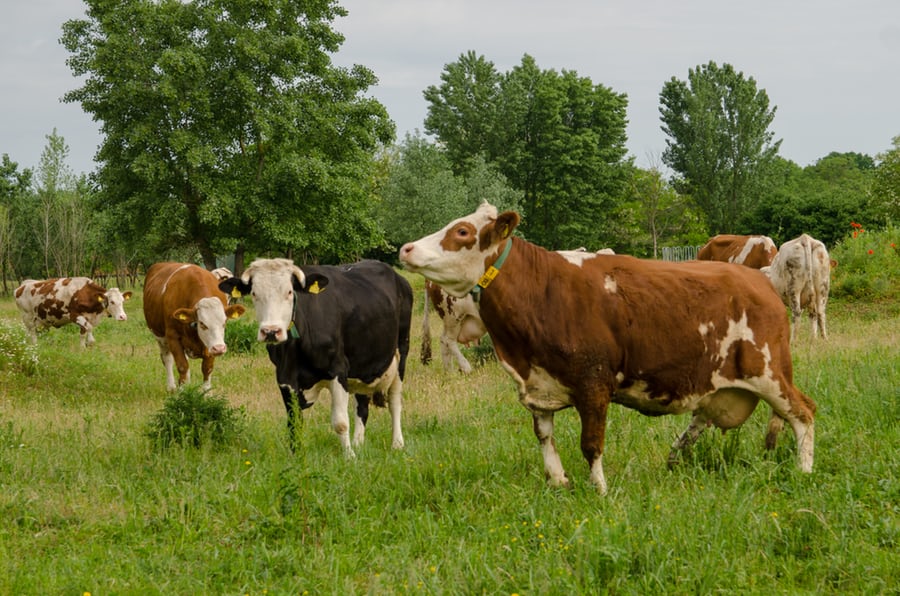The start of a global moo-vement
Livestock is known to be one of the biggest contributors to global warming, with some estimates claiming up to 14% of global gas emissions. The three key gases produced from common farming practices are carbon dioxide, nitrous oxide and methane. All of these are contributors to global warming. Animals such as cows and sheep together produce up to 250-500 litres of methane a day. On a wider scale, the methane produced from livestock globally is equivalent to 3.1 gigatonnes of carbon dioxide. However, some claim that methane might be even worse for the planet than carbon dioxide as it is 25 times more powerful at trapping heat, which is directly linked to climate change.
To help tackle this issue, a farming science research institute “AgeResearch” in New Zealand has developed a vaccine which would reduce the methane emissions from livestock. This would lower the carbon footprint of those who continue to consume meat and dairy. The vaccine targets specific gut microbes in the rumen, which is the primary section of the gut. These microbes decompose and ferment the plant matter in a process called enteric fermentation which produces methane as a waste product, which needs to be released. These microbes are responsible for the high methane emissions produced by livestock and therefore a primary concern for those developing the vaccine.
The methane produced from livestock globally is equivalent to 3.1 gigatonnes of carbon dioxide
The research for the vaccine involved recreating oxygen-free conditions which would mimic those in the rumen. Scientists then used DNA sequencing to target the genomes in some of the key species that are responsible for methane production. The vaccines aim to target multiple microbes at the same time in order to maximise its effectiveness. Since the microbes are all in the archaea group, the vaccine, which is administered by injection, aims to stimulate the production of anti-archaea antibodies in the animal’s saliva. The antibodies should then be transported to the rumen as the animal swallows.
The vaccine has been trialled on various livestock with promising results. While antibodies were found in the saliva, rumen and faeces of the animals tested, scientists remain unsure as to whether the vaccine can permanently suppress the production of methane. To rectify this, the animals are placed into chambers where the air is tested for methane. Other techniques, which do not require the animal to be in a chamber, have been trialled however the results are far less accurate. There has been no strong evidence to suggest that these antibodies can help to reduce methane output despite ongoing research.
Some scientists argue that altering the diet of the animals or breeding for low methane livestock would be more efficient at reducing the levels of methane production
As promising as it sounds, not everyone in the science community agrees that this is the best solution. Some scientists argue that altering the diet of the animals or breeding for low methane livestock would be more efficient at reducing the levels of methane production. Many disagree with the current treatments, including the vaccine, as this interferes with the animals natural gut microbiome. Since the microbiome is essential for maintaining health, altering it may have unforeseen consequences as well as increasing the risk of disease. The effect this would have on the production of good quality meat and milk is still unknown.
Since this vaccine is yet to be proved effective, it is unlikely that it will be widely used in the near future. However, due to the current state of the climate and how quickly it is degrading, any effort to reduce methane production should be taken very seriously.

Comments